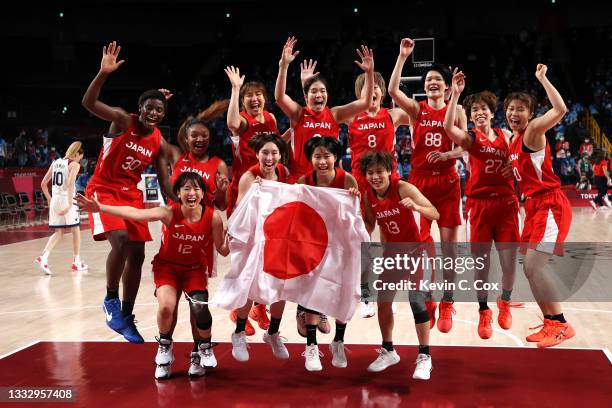In recent years, American professional sports teams have increasingly sought to tap into the lucrative global market, with a particular focus on China, one of the largest and most influential markets in the world. This trend has been especially evident in the NBA, where the league and individual teams have taken various steps to appeal to Chinese fans. The efforts range from playing preseason games in China, to signing Chinese players, to adapting content for Chinese social media platforms. One example of this strategy is the way some U.S. basketball teams have courted Chinese supporters, seeking to expand their fanbase and build stronger ties with China.
The NBA’s relationship with China is a complex one, involving not just the pursuit of new markets but also the balancing of political, cultural, and economic interests. This pursuit has brought about both significant benefits and major controversies. On the one hand, Chinese fans represent a massive audience, with the NBA’s games broadcast widely on Chinese television and digital platforms. On the other hand, navigating the political landscape and the Chinese government’s scrutiny of foreign businesses has proven to be challenging for the league and its teams.
### The NBA’s Initial Success in China
The NBA first began making inroads into China in the early 2000s, driven in large part by the popularity of Chinese basketball star Yao Ming, who played for the Houston Rockets from 2002 to 2011. Yao’s success not only increased the visibility of the NBA in China but also helped build a bridge between the two cultures. The league capitalized on Yao’s appeal, holding events, exhibitions, and games in China. The NBA quickly realized the commercial potential of Chinese basketball fans, as the country’s rapid economic growth and expanding middle class created an ideal environment for global brands to grow.
### Preseason Games and Marketing
To build on this momentum, NBA teams and the league itself began organizing preseason games in China, an effort that still continues today. These games offer a direct way for U.S. teams to engage with Chinese supporters by bringing NBA stars to their doorstep. In 2004, the first NBA China Games took place, and since then, the league has regularly staged high-profile events in major Chinese cities like Beijing and Shanghai. These games are not just about basketball; they are an opportunity for teams to deepen their connection with local fans, build brand recognition, and sell merchandise.
In addition to games, the NBA has used digital platforms to increase its footprint in China. Streaming platforms like Tencent hold exclusive broadcast rights to NBA games in China, and the league has tailored content specifically for the Chinese market. Whether it’s through social media campaigns on WeChat and Weibo, or the production of localized content like behind-the-scenes player interviews, teams and the NBA as a whole have worked hard to ensure that their appeal remains strong in China.
### Teams Going the Extra Mile
Several NBA teams have been particularly aggressive in courting Chinese fans. One such team is the Los Angeles Lakers. The Lakers, with their star-studded history and global appeal, have made numerous efforts to solidify their position in China. They have long been associated with Chinese superstar Yao Ming, and after his retirement, the Lakers maintained close ties to the Chinese market, often including Chinese language content in their promotional efforts. The team’s global brand, coupled with its extensive marketing campaigns, has made it one of the most well-known NBA franchises in China.
Another team that has tapped into the Chinese market is the Golden State Warriors. The Warriors have become one of the most successful NBA teams in recent years, thanks to their on-court dominance. Their success, coupled with their star players like Stephen Curry and Klay Thompson, has resonated deeply with Chinese basketball fans. The Warriors have partnered with various Chinese companies for sponsorships, and the team’s digital content has been specifically targeted at the Chinese audience. They also host events and activities designed to engage Chinese supporters, including fan meet-and-greets and online competitions.
### The Complexities of China-U.S. Relations
However, as NBA teams and the league itself have sought to increase their reach in China, they’ve also had to navigate the sometimes delicate political landscape. The NBA’s lucrative relationship with China came under intense scrutiny in 2019, following a tweet by Houston Rockets general manager Daryl Morey, expressing support for pro-democracy protests in Hong Kong. The response from the Chinese government was swift, with sponsors pulling out and Chinese broadcasters suspending NBA games. This incident highlighted the tension between American values, such as free speech, and the political sensitivities of the Chinese government.
Since then, the NBA has tread carefully when discussing political issues related to China, striving to maintain a balance between doing business in the country and adhering to its broader ethical commitments. Some U.S. teams, meanwhile, have faced criticism for prioritizing their financial relationships in China over social and political issues in the United States.
### Conclusion
As NBA teams continue to court Chinese fans, they must balance their desire for commercial growth with the complexities of the geopolitical environment. China’s massive market offers a goldmine of opportunity, but the road to success is fraught with challenges. The future of U.S. basketball teams’ engagement with China will likely continue to evolve, shaped by both economic opportunities and political realities. For now, it is clear that teams will keep finding ways to connect with Chinese supporters, whether through marketing, game events, or digital content, all while navigating a complex international landscape.
